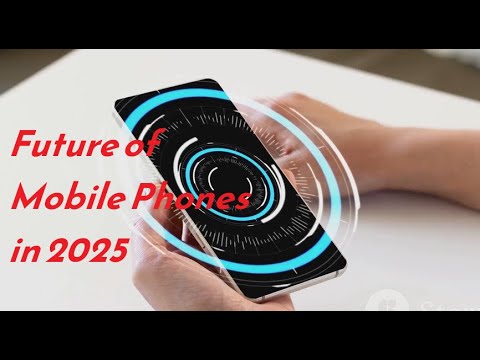Upcoming Mobile Phones 2025: Future Features & Specs

As of now, predicting the exact specifications and features of mobile phones in 2025 can be speculative, but we can anticipate trends based on current technological advancements and consumer preferences.
Here’s an overview of potential features and specifications we might see in upcoming mobile phones in 2025:
Design and Display
Flexible and Foldable Displays: More manufacturers may adopt innovative folding designs, allowing for larger screens in compact forms.
Under-Display Cameras: Improved technology could enable high-quality under-display cameras for a truly uninterrupted screen experience.
High Refresh Rate Displays: Expect 120Hz to 240Hz refresh rates becoming standard, enhancing smoothness in scrolling and gaming.
Enhanced Durability: Phones might feature advanced materials like graphene for better durability and lighter weight.
Performance
Advanced Processors: Chips with AI capabilities and increased efficiency, possibly built on 3nm technology, offering better performance and battery life.
Increased RAM and Storage: Devices could come with 16GB RAM or more, and storage options reaching 1TB or even integrated cloud solutions.
Enhanced Graphics Performance: GPUs may support advanced gaming features like ray tracing on mobile devices.
Camera Technology
Multi-Lens Systems: Continued growth in multi-lens systems that provide versatile photography options and enhanced low-light performance.
AI-Powered Photography: Advanced AI algorithms for better image processing, scene recognition, and real-time enhancements.
8K Video Recording: Mainstream support for 8K video recording, with improved stabilization and editing capabilities.

Battery and Charging
Fast Charging Technology: Charging speeds could exceed 100W, enabling a full charge in under 30 minutes.
Longer Battery Life: With more efficient processors and AI optimizing power use, devices may last longer on a single charge.
Wireless Charging Innovations: Improvements in wireless charging efficiency and the potential for reverse wireless charging to power other devices.
Connectivity
5G and Beyond: Widespread adoption of 5G technology with multi-band support; potential early implementations of 6G.
Wi-Fi 7: Enhanced Wi-Fi capabilities providing faster speeds and lower latency for better streaming and gaming experiences.
Satellites for Communication: Integration of satellite connectivity for emergency communication in remote areas.
Software and Features
Augmented Reality (AR) Integration: Enhanced AR capabilities for applications in gaming, navigation, and social media.
AI Personal Assistants: More advanced AI assistants that learn user habits and provide proactive suggestions.
Privacy Features: Increased focus on privacy and security, including advanced biometric authentication options (like 3D face recognition).
Sustainability
Eco-Friendly Materials: Greater use of sustainable materials and recycling practices in phone manufacturing.
Modular Designs: Phones designed for upgrades (like cameras or batteries) instead of complete replacements, reducing e-waste.
Health Features
Health Monitoring Sensors: Advanced health sensors that can track a wider range of metrics (like glucose levels or hydration).
Wearable Integration: Improved integration with wearables for health data compilation and actionable insights.

Conclusion
While these features and specifications are speculative, they showcase the direction the mobile phone industry may take in the coming years
. As technology continues to evolve, the emphasis on performance, sustainability, and user experience will shape the future of mobile devices.
Keep an eye out for announcements from leading manufacturers as we approach 2025!
Comentarios
